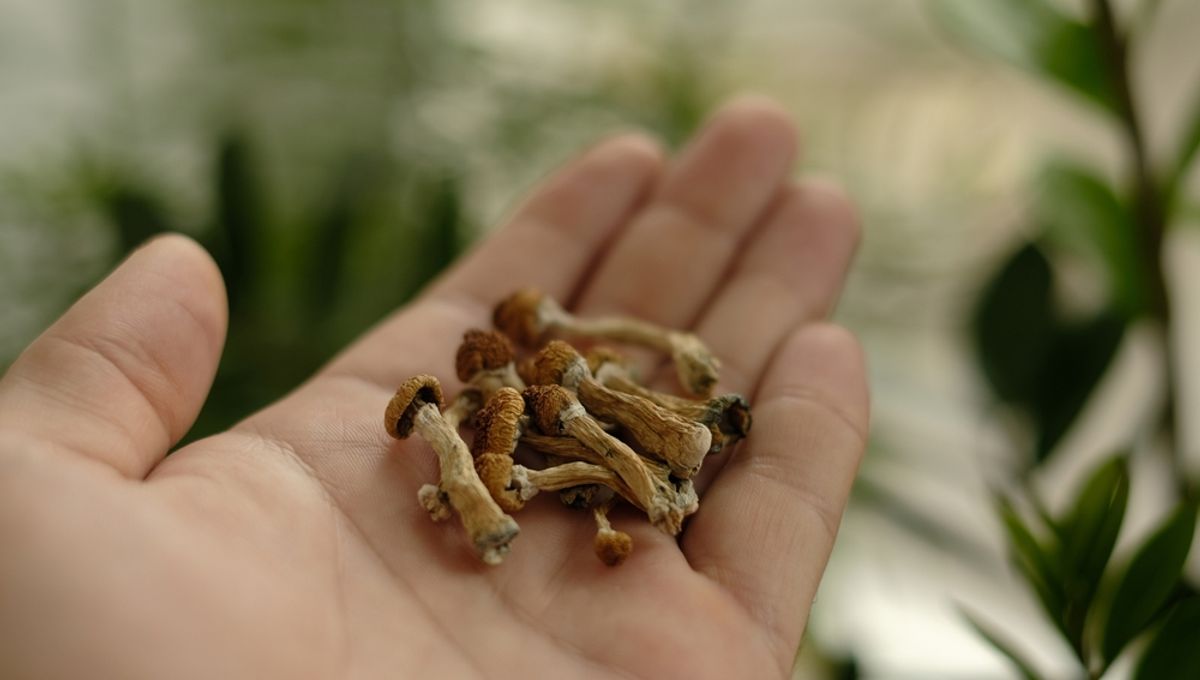
The first placebo-controlled clinical trial of psilocybin as a treatment for alcohol use disorder (AUD) reveals that the psychedelic compound may help heavy drinkers significantly reduce their booze intake. Eight months after receiving the drug, participants’ heavy drinking was on average 83 percent lower than at the start of the study period.
Writing the journal JAMA Psychiatry, the study authors explain how they were inspired by research carried out in the 1960s which showed that AUD sufferers who were treated with LSD were almost twice as likely to stop drinking than those who didn’t receive the drug. However, because of restrictions on the use of psychedelics, this line of investigation was halted for more than half a century.
Picking up the thread, the researchers decided to investigate the efficacy of psilocybin – found in magic mushrooms – as an alcohol addiction treatment. Recent advances in psychedelic research have highlighted the compound’s capacity to alleviate depression and other mental health issues, although rigorous controlled trials into the drug’s impact on AUD had never previously been conducted.
To plug this gap, the researchers recruited 93 people with AUD, each of whom underwent 12 weeks of psychotherapy at the start of the study period. On weeks four and eight, half of participants received a high dose of psilocybin while the other half were administered an antihistamine placebo.
Those who were given psilocybin managed to reduce their number of heavy drinking days from 52.7 percent at baseline to just 9.7 percent 32 weeks after their first dose. This represents an 83 percent decline in heavy consumption.
In contrast, heavy drinking days fell by just 51 percent among those who received the placebo. Overall, participants in the psilocybin group engaged in 59 percent less heavy drinking than those in the placebo group by the end of the study period.
“Our findings strongly suggest that psilocybin therapy is a promising means of treating alcohol use disorder, a complex disease that has proven notoriously difficult to manage,” explained study author Dr Michael Bogenschutz in a statement.
Ultimately, 48 percent of those who received psilocybin had given up drinking altogether by week 36, compared to just 24 percent of those who were given the placebo. The average “overall problem” score – which takes into account the physical, social and personal toll of alcohol consumption – was 6.59 for participants in the psilocybin group and 13.0 for the placebo group at this final follow-up point.
“As research into psychedelic treatment grows, we find more possible applications for mental health conditions,” said Bogenschutz. “Beyond alcohol use disorder, this approach may prove useful in treating other addictions such as cigarette smoking and abuse of cocaine and opioids.”
While the study authors warn against self-medicating with magic mushrooms, they are hopeful that further clinical trials will lead to the establishment of effective psilocybin-based treatment protocols for AUD.
Source Link: Psilocybin Therapy Helps Treat Alcoholism In First Controlled Clinical Trial